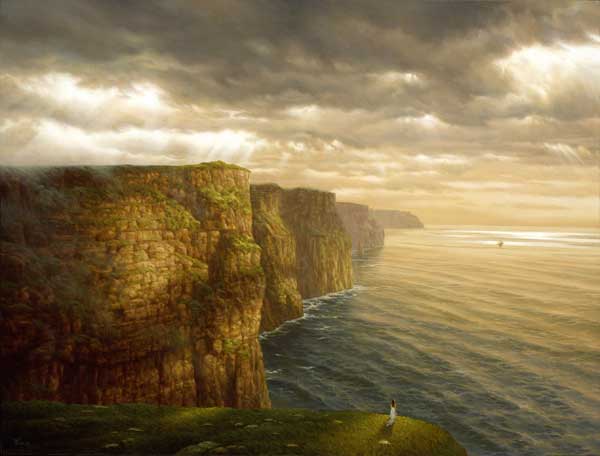Lately, I cant help but feel super guilty over this whole climate change thing. Every time I buy something new, use something, or drive anywhere, I second guess myself. I think twice about what I am doing. Reduce, reuse, recycle isn't enough anymore. I’ve become hyper-aware of myself and my actions and how they impact my footprint that I leave on the Earth. And while yeah, it’s great that I am conscious and sort of trying to do something about the impact I have, its kind of for a selfish reason. I really don't want to experience the “climate changed” planet that has been written about. Even though most of the pieces that I've read that project some type of crazy climate centered apocalypse have been fiction, they still scare me. I don't want to have to experience the future that these pieces portray. Is that selfish of me?
 |
| Northern Ireland |
As climate change effects Ireland in The White Horse Trick, it seems as though the people have reverted to the middle ages. Warlords rule the land. People are captured and become servants when they can no longer pay their taxes (of food) to the Warlords. The book focuses on a specific area of Northern Ireland ruled by Commander in Chief Aidan Liddy. Liddy rules the area as he was prepared for this climate change disaster and stock piled tons and tons of food and supplies. He lives a life of luxury accompanied by things of the past like scotch, DVD's, and fat. The people on the other hand are starving, nothing left but skin and bones. It's becoming harder and harder to live. Earth is becoming uninhabitable. There's nothing to do that they can do to save themselves, other than magic.
 |
| T'ir na n'Og |
In the end, humans are eventually given the chance to start over in this new world, however there are limitations. Only a few are allowed in and It seems as though this is what we need now. A chance to do it over, a chance to get it right, a chance to ruin the Earth less. Except we do not have a magical land to escape to (at least not that I know of). We just have to live with the consequences of climate change, which we can only hope are not like the ones portrayed in the cli-fi that we have read.